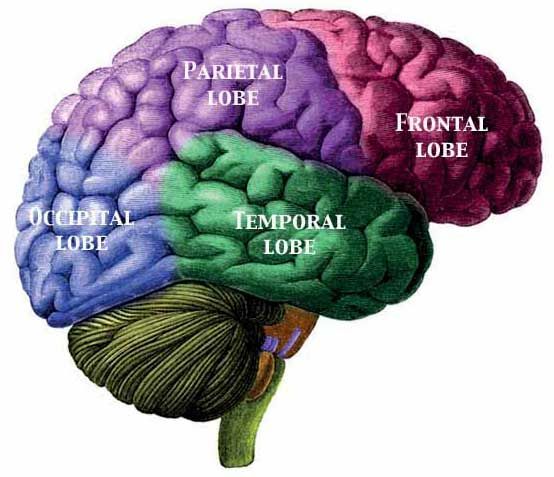
Bill Moyers did a fascinating series on healing, and one interview he did has really stuck with me. A man had had a stroke, taking out much of the emotional part of the brain. While the higher parts of the brain, including the frontal lobe we explored last week, remained untouched, the man was left with the inability to make decisions, a crucial part of willpower. Turns out, our emotions help us sort out which choice we want to make, and help us access the learning experiences that inform our decision-making. It is this happy ballet between the feeling and the thinking parts of our brain that lead to well-considered decisions. What keeps our feelings motivational and not overwhelming is the healthy filter the neocortex, and all its nifty lobes, provide. While I may be getting ahead of myself here…I’ll be doing justice to the importance of neural/brain functioning in a later series…the value of our frontal lobe as filter cannot be underestimated.
Attention Deficit Disorder and stress medicine in particular give us some clues. Much of what works for those with ADD works for the rest of us as well. Diet plays an important part, most notably sugar and gluten. Simply watching what you eat, and the quantity, can help immensely. A client recently found herself able to follow through with her commitments to self-care when she finally treated the chronic anemia that had been plaguing her for years. Chronic stress also drives the action in the brain towards the caboose, the more primitive and reactive states, and in extreme states can overwhelm even the strongest of filters. So antianxiety practices such as meditation and some forms of exercise, as well as good rest (getting enough sleep?), also improve activity where you exercise your will.
One more exercise, and it’s one you can do while at a stoplight, or waiting your turn at the service counter. Certain eye movements activate the PFC, that crucial part of the frontal lobes I explored last week. They’re called “saccades,” and they’re the basis of EMDR, or Eye Movement Desensitization and Reprocessing, a therapy for trauma. Careful with this one, as it’s powerful…allow your eyes to move rapidly between left and right. Try it now, doing only about four to five repetitions. Then stop. Rest your eyes. Do this about 5-6 times each day. After a few weeks, you may notice a marked difference in how sharp and focused you feel, and both your decision making and your ability to plan effectively will most likely show improvement.
Finally, be patient with yourself. Cultivate self-compassion as best you can and be wary of perfection, for it doesn’t exist in nature. And to the extent that you do carry out any of your promises…I’m proud of you. Be proud of yourself. Peace.
To respond and read the full article and other responses, click here…